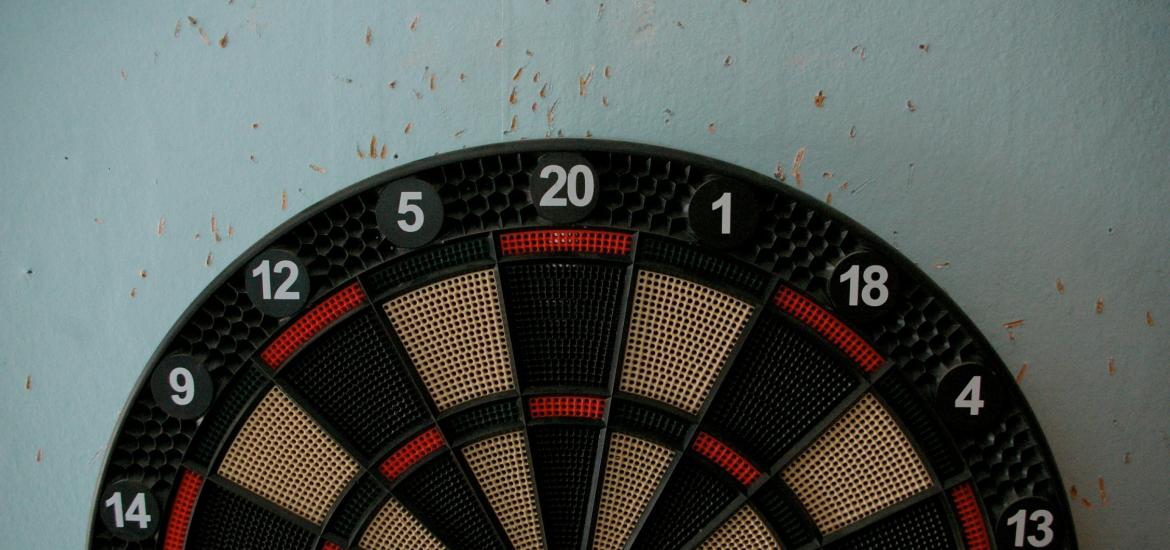
FibroGen hopes to buck its pamrevlumab trend
Two pancreatic cancer trials will read out this quarter, but after a string of failures with the project they look like a long shot.
Two pancreatic cancer trials will read out this quarter, but after a string of failures with the project they look like a long shot.

Pamrevlumab has already disappointed in diseases as diverse as idiopathic pulmonary fibrosis and Duchenne muscular dystrophy; now its maker, FibroGen, has a shot at pancreatic cancer. Two trials are set to read out in the current quarter that could either breathe new life into the troubled project or spell the end of its development.
There are plenty of reasons to be wary: on top of the previous failures, pancreatic cancer is a tough nut to crack, and earlier data raise questions. FibroGen’s stock, which traded at around $50 in the company’s heyday, currently sits under $2, suggesting that investors aren’t holding out much hope for the studies.
Pamrevlumab is a monoclonal antibody targeting connective tissue growth factor (CTGF), a factor involved in various biological processes, including fibrosis and tumour development. According to FibroGen, CTGF expression is elevated in pancreatic cancer.
Lapis and Precision Promise
The FibroGen-backed phase 3 Lapis trial is testing neoadjuvant pamrevlumab plus chemo, versus chemo alone, in unresectable locally advanced pancreatic cancer.
Meanwhile, an investigator-sponsored phase 2/3 platform study, Precision Promise, includes an arm evaluating pamrevlumab plus chemo in first and second-line disease. The trial also incorporates chemo control arms.
Results from both studies are expected in the second quarter; data from Lapis had originally been due in last quarter.
Pamrevlumab’s pivotal pancreatic cancer trials
| Study | Setting | Regimen | Primary endpoint | Note |
|---|---|---|---|---|
| Ph3 Lapis | Neoadjuvant therapy in locally advanced, unresectable pancreatic cancer | Pamrevlumab + chemo vs chemo | Overall survival (event based) | Continued to final OS analysis after EFS interim analysis in Aug 2022 |
| Ph2/3 Precision Promise | 1L/2L metastatic pancreatic cancer | Pamrevlumab + chemo | Overall survival (at 12mth after last pt in) | In Stage 1 pamrevlumab achieved prespecified ≥35% predictive probability of success for primary endpoint of OS at trial completion |
Source: OncologyPipeline.
The primary outcome of Lapis is overall survival. FibroGen had once hoped to file pamrevlumab for accelerated approval based on the secondary endpoint of event-free survival; however, an interim analysis came and went in 2022, with the company saying in August that year that the trial would continue to its OS endpoint.
Phase 1/2 data also provide reasons to be cautious. When FibroGen reported data at ASCO 2018 it focused on the proportion of patients previously considered unresectable who became eligible for resection, favouring those receiving pamrevlumab plus chemo versus chemo alone.
However, the more widely accepted endpoint of overall response rate showed no difference between the pamrevlumab and control arms, at 21% and 23% respectively, according to the ASCO poster.
One positive for FibroGen could be that pamrevlumab “graduated” to the second stage of the Precision Promise trial, after hitting a prespecified efficacy bar. The company noted that the project was the first in the study to do so; however, this might not be much of an achievement, given that the other drugs being tested were the Novartis flops canakinumab and spartalizumab, and Tyme Technologies’ troubled SM-88.
FibroGen flops
FibroGen has had its fair share of troubles too. The group’s stock crashed last June when pamrevlumab flunked two pivotal studies: Zephyrus-1 in idiopathic pulmonary fibrosis and Lelantos-1 in non-ambulatory DMD; it went on to fail Lelantos-2 in ambulatory DMD. By then the company’s hopes for its chronic kidney disease anaemia drug roxadustat were already in tatters, and FibroGen finally lost AstraZeneca as a partner to that asset in February.
Last week FibroGen claimed “promising” phase 1 data with the Fortis-originated anti-CD46 ADC FG-3246 in late-line metastatic castration-resistant prostate cancer; however, a PSA50 rate of 36% pales against the 56% recently posted by Janux in this disease, and FibroGen’s stock slumped.
The group, which is currently trading below its cash levels, will need to show something more convincing in pancreatic cancer if it is to tempt back investors.
1218













